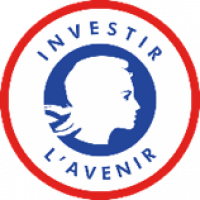
ECOCAP
People involved
Ecotoxicology analysis of cathodic protections to assess the chemical risk of elements released from galvanic anode and impressed current on the marine environment and its food webs
CONTEXT
Cathodic protections – such as galvanic anodes (GACP) and impressed current (ICCP) – and anticorrosion paints are a widely used effective method to prevent the corrosion of metallic materials immersed in seawater. However, they lead to the release of large quantity of chemical elements into the marine environment, whose potential harmful effect, still poorly understood, is a concern for environmental authorities and civil society. The potential ecotoxicological effects of the released elements on the marine environment and its food webs are not well known yet. There is therefore a need to investigate in depth the environmental impact of such protections.
OBJECTIVE
To produce a knowledge base of the potential environmental impacts of anticorrosion protections commonly used in the offshore renewable energy industry, including galvanic anodes cathodic protections (GACP), impressed current cathodic protections (ICCP) and anticorrosion coatings.
SCIENTIFIC CONTENTS
- A bibliographic review and an audit of current practices of cathodic protections and anticorrosion coatings
- A series of laboratory experiments to: Assess the chemical risk of aluminium in seawater and from GACP, study the impacts of GACP and ICCP cocktails of elements on marine organisms, and characterise all elements, including (chloro)brominated compounds released by ICCP, and study of their stability in seawater
- Upgrade and develop models to: Simulate elements’ dispersion of GACP and ICCP (hydrodynamic model) and investigate the trophic transfer of GACP and/or ICCP elements in food webs (trophic model)
- Publication of a conclusion and a recommendation report for ORE stakeholders report
SCIENTIFIC COORDINATION: UMR BOREA, Christelle Caplat, Assistant professor at University of Caen Normandy (UCN)
This project receives funding from France Energies Marines and its members and partners, as well as French State funding managed by the National Research Agency under the Investments for the Future Programme. The project also has the financial support of the Provence-Alpes-Côte d’Azur, Brittany and Normandy regions.
| Attachment | Size |
|---|---|
| 1.17 MB |
Partenaires :
- France Energies Marines (coordinateur)
- Borea (pilotage scientifique)
- Smel (Synergie Mer et Littoral)
- Université de Toulon-SeaTech (MAPIEM)
- Université d’Aix-Marseille (LCE), UBS (LBCM), Ifremer (ARC, LER PAC, LBCM et MARBEC),
- INERIS (ARC)
- INRAE
- Station Ifremer de Palavas (GABI).
Partenaires privés :
- Institut de la Corrosion
- CEDRE
- EDF Renewables
- EOLFI/Shell
- Engie Green
- Qair
- Rte
- Saipem
- RWE
- WPD

